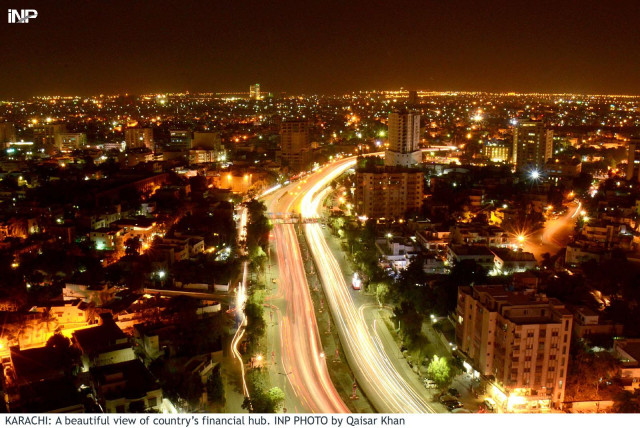Where is the economy stuck?
Absence of coordination between govt, market forces slows down development

PHOTO: INP
In the past, however, this hope has been repeatedly dashed by cycles of impediments that triggered slowdown and even capital flight.
What in the first place is implied by economic development in a country like Pakistan, which is marred by cyclic upheavals? To understand this, one needs to know the stages of development and the distribution of wealth and facilities.
17 predictions for Pakistan's economy in 2017
Inflow of capital, development of infrastructure, availability of equity and financing, creation of institutions for the provision of health care, education and civic amenities, and faster spread of market are the main tools of achieving economic growth.
Impediments in the way are basic and secondary. The government needs to tackle the basic obstacles whereas market forces are required to wrestle with the secondary hurdles.
How the government and market forces reinforce each other is the main question. Failures and impediments to growth are the outcome of slow spread of infrastructure and incapacity of market forces to support the creation of socio-economic institutions.
In such a situation, it becomes tough for financing institutions to play a role in reinforcing the market and growth.
Critics usually point to the government’s incapacity to play its part. Even if the state is efficient enough to allocate funds and execute infrastructure projects, the market forces and financing institutions are unable to supplement the development on a larger scale.
The support cannot be provided unless market players pick up pace in production and distribution as well as stay responsive to the needs of efficient financing.
National character
Pakistan is stuck at a point where coordination among the government, market forces, financing institutions and entrepreneurs is hard to achieve. In many developing economies, where we observe such cooperation, efforts aimed at supplementing growth are the main national driver.
Indicators in Pakistan tell a different story. Here the national character is marked by policy riddles, sluggish bureaucracy, hardships of market players, underperforming financing institutions, slow income generation and weak institutional and social growth in health, education and employment sectors.
Some of the economic observers believe that the main impediment to growth is the law and order situation and corruption at the highest governance levels. The deterioration in law and order and large-scale corruption is indeed an impediment, but not in economies where other drivers of growth are unfettered.
'Pakistan's economy will collapse in the next 10 years'
Cycles of growth are now studied as part of the international process both in developed and developing economies. Modern political-economists expect sluggish development in economies where growth-oriented coordination among different elements is hard to achieve.
They make efforts to find out where the situation becomes hostile to the growth process. This hostility is mostly found in the underperforming government. Deep-thinking observers, however, look at it in the antiquated institutional and infrastructure spread.
In Pakistan, it should be looked at in both spheres. Institutions of the state are antiquated that arrest rather than reinforce the elements of growth.
There should be a list of actual impediments at play and concrete steps required for faster growth.
One needs to keep the bigger picture in view while focusing on such a complex situation. Economic forces are hard to bring around as part of a trigger as there are no magic elements like gold, energy boom or a gigantic amount of remittances.
That is why CPEC is being deemed as the sole trigger factor. If Pakistan is to be on the path of faster development, it needs to work on the following: diversification and increase in productivity of major crops, greater allocation of the budget for infrastructure and social development, incentives for expatriate and foreign investors, cutting down on the organs of state that prove cumbersome rather than helpful, improving the education system, dealing a conclusive blow to the terrorist elements and for this purpose revisiting the foreign policy.
The writer has worked with major newspapers and specialises in the analysis of public finance and geo-economics of terrorism
Published in The Express Tribune, February 20th, 2017.
Like Business on Facebook, follow @TribuneBiz on Twitter to stay informed and join in the conversation.



















COMMENTS
Comments are moderated and generally will be posted if they are on-topic and not abusive.
For more information, please see our Comments FAQ